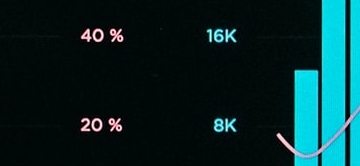Whether civil, international or fighting disease, wars leave their mark on society. Social science research shows that war reduces individualistic tendencies and increases empathy. Individuals behave in a more cooperative and altruistic manner; they are more inclined to join social groups. There are differences depending on the type of war: unlike civil wars, wars between states generate common interests which bridge the gaps between groups.
Of course, much of this new altruism is directed towards those in our own group, the "in-group", like our fellow citizens in a war against an external enemy. A health war against Covid-19 has the advantage that the group extends beyond its fellow citizens to all of humanity and that there is no "out-group" other than the virus ... provided we do not follow the US president in calling the virus a “Chinese disease” and that the “every country for itself” reflex does not prevail.
If this crisis exhibits the same gap-bridging pattern between our compatriots and between Europeans, this could be good news, given the recent trend towards populism, nationalism, ethnic and religious intolerance. From this point of view, the reformulation by President Macron of the fight against the coronavirus as a “war” may have been judicious.
Global vulnerability
If one can be reasonably optimistic in this regard, it is less likely that the development of public policy will take a longer-term perspective. Are we finally going to learn our lesson? We are underinvesting in education and training; we overlook the fight against climate change and various other policies that would limit the damage caused to the next generation by climate, artificial intelligence, debt, inequality and other impending challenges.
Covid-19 reminds us of our overall vulnerability in matters of health. We need to invest in effective health systems and promote research that will allow us to respond quickly to emerging threats. We were already aware of the lack of research on antibiotics, given the increase in antibiotic resistance. We were concerned about biological warfare. We are trembling with fear at the melting of permafrost which, in addition to emitting large volumes of greenhouse gases, will also release old viruses and bacteria, with unpredictable consequences. We now realize that the problem is even wider. Global health crises are no longer “rare events”.
Unfortunately, people have a short memory, they rarely learn from history. Ultimately, the question comes down to: "Are we ready to spend enough on health research?" Are we ready to pay a carbon tax to save the planet? " If our answer to these life-threatening questions remains negative, our tendency to procrastinate, our motivated belief that the problems will go away on their own or be solved by others, and our collective irrationality will get the better of us.
We also need to reconsider our view of the world. We must face reality rather than taking refuge in pseudo-ethical postures. In many countries, hospitals face a terrible ethical dilemma. Being under-equipped, they sometimes have to choose who will live and who will die. It goes without saying that no one would want to be faced with such a dilemma, starting with the medical staff forced to make the selection. However, the public is unaware that hospitals normally face similar, but less visible, dilemmas: allocating their budgets and staff means rescuing some patients at the expense of others with different illnesses.
Give up short-termism
Our moral principles teach us that life is priceless: we should not compare a decrease in purchasing power with a decrease in the probability of death. In practice, however, life has a value. In their daily lives, citizens do not systematically put life above money and are not ready to reduce consumption considerably in exchange for a safer world. We would like to erase these troublesome thoughts, but we cannot. As unpleasant and disturbing as these cold calculations on health choices are, we cannot escape the rationalization of the allocation of existing health budgets.
But that doesn't stop us from rethinking our collective allocation of resources between everyday consumer goods on the one hand, and health and education on the other. Perhaps we must realize that the fight against climate change, like that against the coronavirus, is everyone's responsibility.
We must take advantage of the pandemic to act together on social norms and incentives. Changing norms requires convincing citizens that certain behaviors are anti-social and/or frowned upon by the majority of the population; in short, using social pressure to push economic actors to act in the direction of the common good, rather than encouraging them through financial incentives. However, our efforts over the past thirty years to change the social norm on climate without introducing sufficient financial incentives have been in vain. Reducing our individualism often goes hand in hand with increased accountability for the actions for which we are responsible, as demonstrated by the successful experience of fight against smoking in public places, or the very effective awareness campaign linked to a tax on plastic packaging in Ireland in 2002.
And we must abandon our collective short-termism, because the new solidarity must be intergenerational as well as intragenerational. Such a societal change would at least be an unexpected tribute to the victims of Covid-19.
Photo by Pierre Bamin on Unsplash




